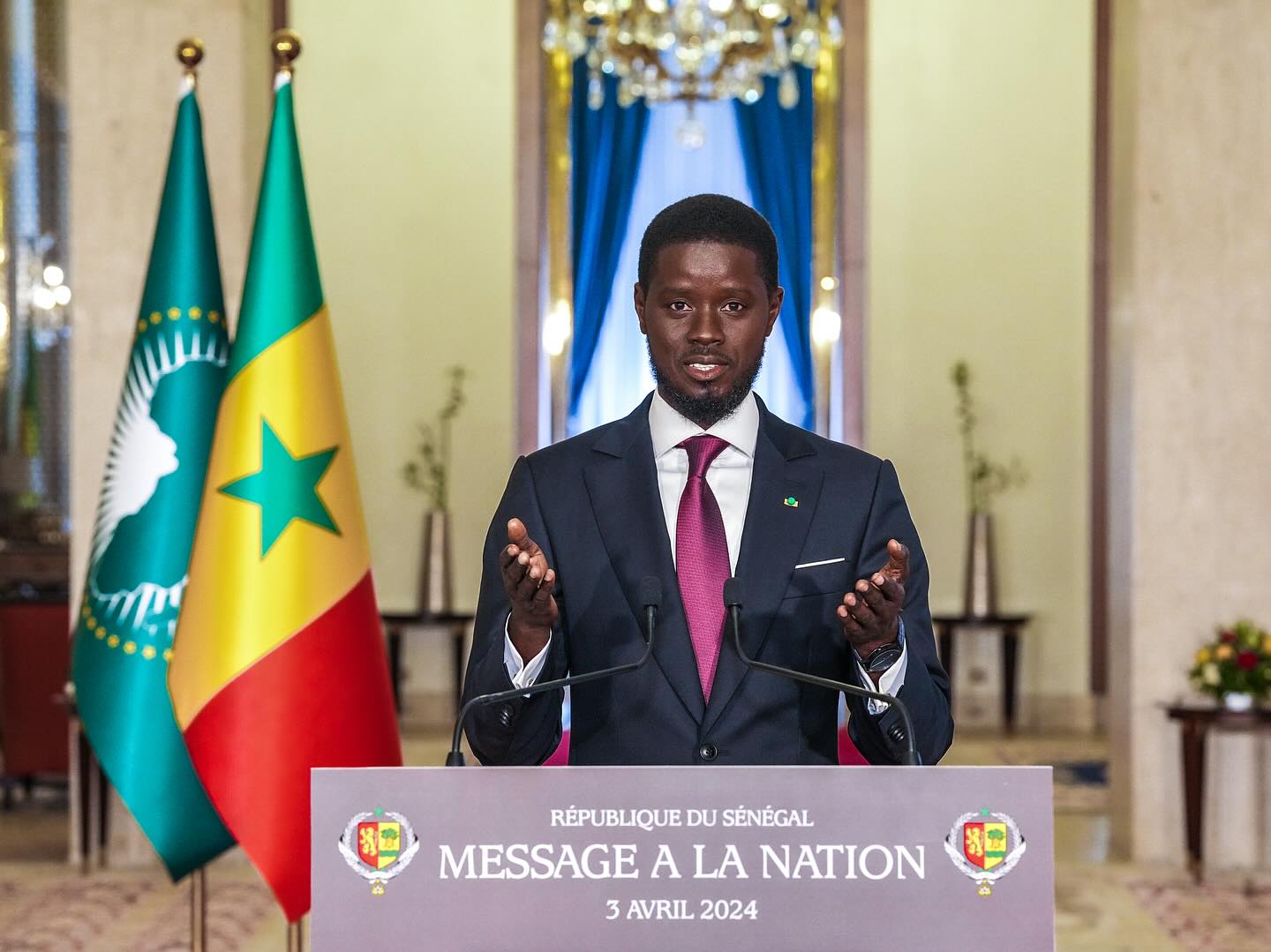In axis 2 of its electoral programme, the new Senegalese authorities have unveiled their priorities for the “sustainable management of the fisheries and aquaculture sector”. The Association for the Promotion and Empowerment of Artisanal Maritime Fishing in Senegal (APRAPAM) has identified a number of key measures to ensure the future of artisanal fishing.
Priority on developing small pelagic fisheries and stopping fishmeal production
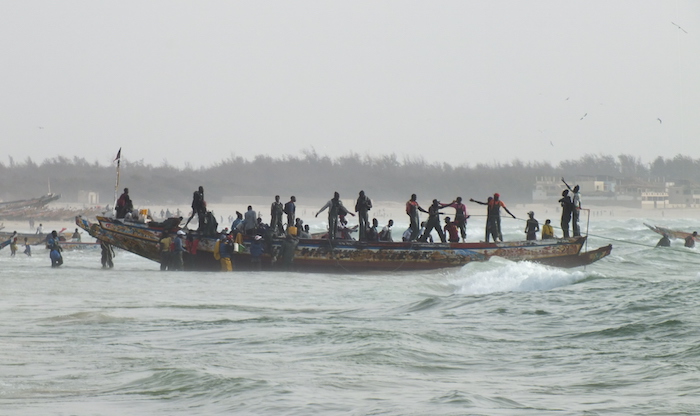 A first proposal is ‘the implementation of management plans for key fisheries’. Moving towards responsible management of our resources is the key to the future of our sector, and management plans are an essential tool for this.
A first proposal is ‘the implementation of management plans for key fisheries’. Moving towards responsible management of our resources is the key to the future of our sector, and management plans are an essential tool for this.
Firstly, we need to reinvest massively in fisheries research. If we don’t know the state of our resources, how will we know if we are fishing responsibly? The Centre de Recherches Halieutiques Dakar Thiaroye (CRODT) must receive its annual budget. It is also essential to buy a new vessel to better assess the state of the stock and produce reliable statistical data for better fisheries governance.
There is an urgent need to implement development plans for small pelagics, especially sardinella (yaaboy), which is a real food safety net for our populations. Fishing for small pelagics is a source of employment and income for local people, particularly women fish processors, who market them throughout the region. Several species of small pelagic fish, notably round and flat sardinella and ethmalose (koobo), continue to be overexploited, especially for fishmeal and fish oil production, with the number of factories increasing exponentially over the last decade. A recent report notes that in Senegal, the per capita availability of small pelagics fell from around 16kg/year to 9kg between 2009 and 2018.
Faced with this alarming situation and the threat of a major food crisis, it would be incomprehensible for the government to support ‘the production of fishmeal at local level by setting up industrial units’, as proposed in its programme. We need a coherent approach to reduce the pressure on our resources and reserve them for human consumption.
Maintaining the commitment to co-management and combating the opacity of joint ventures
The participation of artisanal fishing stakeholders in fisheries management, a commitment made since 2015, is an asset for Senegal. However, the participation of stakeholders in fisheries management can only be achieved if there is maximum transparency. Senegal, which since 2016 has said it is open to joining the fisheries transparency initiative FiTI, should walk the walk, notably by regularly publishing the list of boats authorised to fish in our waters.
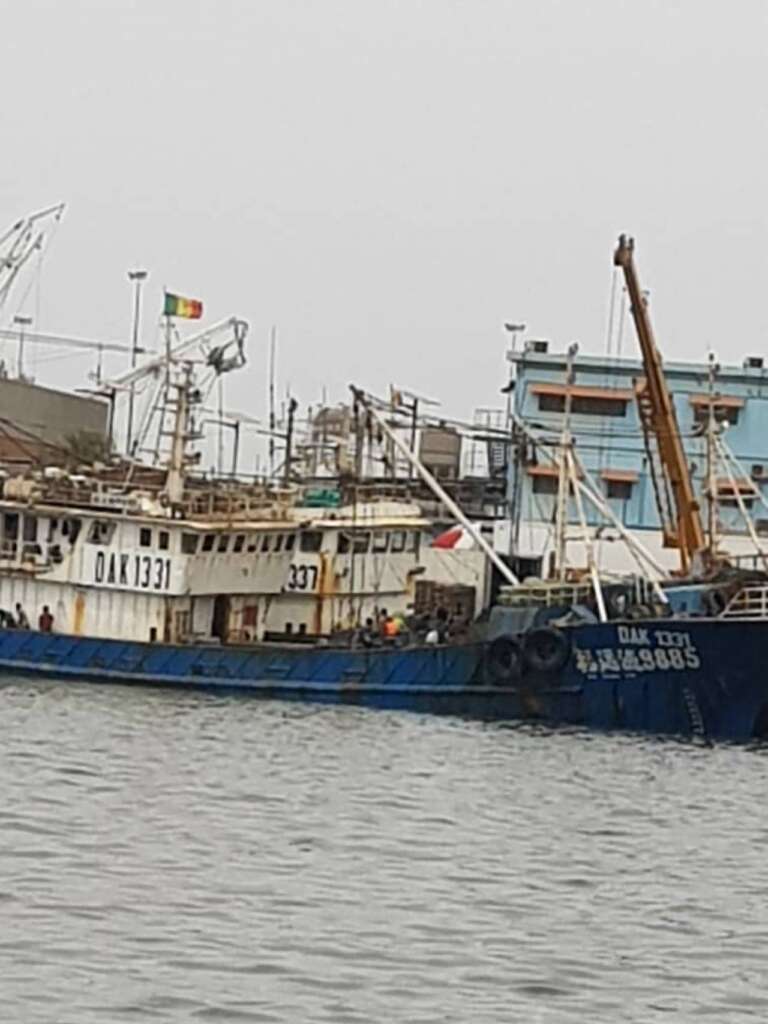 This lack of transparency is evident above all in the management of the allocation of fishing licences in Senegal. In early August 2023, the Conseil interprofessionnel de la pêche artisanale du Sénégal (CONIPAS) denounced the lack of transparency in the allocation of licences to vessels of foreign origin, mainly Chinese, but also Korean, European, Turkish and Russian.
This lack of transparency is evident above all in the management of the allocation of fishing licences in Senegal. In early August 2023, the Conseil interprofessionnel de la pêche artisanale du Sénégal (CONIPAS) denounced the lack of transparency in the allocation of licences to vessels of foreign origin, mainly Chinese, but also Korean, European, Turkish and Russian.
Over the past ten years, Senegalese civil society has raised its voice several times against the government’s desire to allocate licences on the sly to foreign vessels present in Senegal through joint ventures and charter contracts. The audit of the Senegalese flag, promised on numerous occasions since 2006, remains on the government’s electoral agenda. This audit should be published. Fish belong to all Senegalese, and it is only fair that all our citizens should know which companies, from which origin, have used our flag to fish in Senegal and sometimes even throughout the region.
To ensure that these foreign boats do not compete with local artisanal fishing, and are in line with the objectives of sustainable fisheries development in Senegal, the Consultative Commission for the allocation of licences should play a more important role. To achieve this, it should become a deliberative commission – rather than a consultative one as at present – with a larger number of representatives of the fishing sector’s stakeholders. At present, only three members of the Commission represent the fishing sector, out of more than ten who are representatives of administrations and authorities.
A 12-mile artisanal fishing zone, which must be well protected
An important first step taken by the new government in its election programme was to reserve ‘the 12 nautical mile zone (12 miles) for the exclusive use of artisanal fishing. This major reform is designed to protect artisanal fishing and artisanal professionals from the incursion of industrial fishing boats’.
Participatory surveillance has a role to play here. For Senegal’s artisanal fishing sector, IUU fishing – in particular incursions by vessels using destructive gear in coastal areas, such as coastal trawlers – remains a scourge to be combated, as it is directly linked to overfishing and therefore poses a risk to food security.
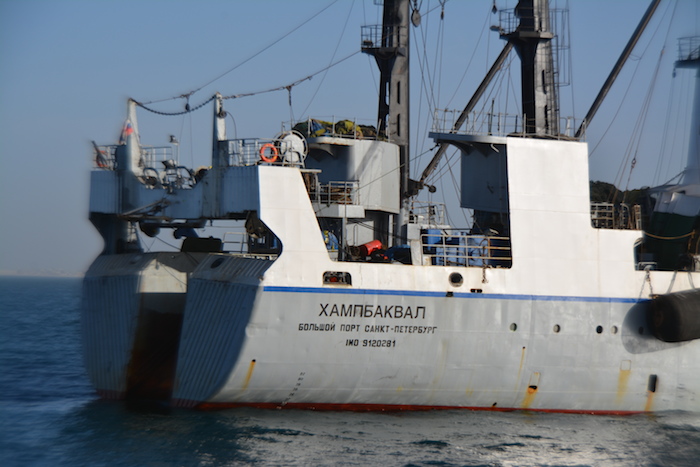 To combat these incursions, participatory surveillance has been praised for several decades, but it is not yet clearly and legally defined, particularly via the adoption of the status of the ‘surveillant fisher’, and generally lacks administrative, logistical and financial support.
To combat these incursions, participatory surveillance has been praised for several decades, but it is not yet clearly and legally defined, particularly via the adoption of the status of the ‘surveillant fisher’, and generally lacks administrative, logistical and financial support.
Among the problems reported by fishers involved in this surveillance are the lack of boats, the fact that fishermen have to provide their own fuel for surveillance trips, and the frequent lack of response from the authorities when it comes to enforcing the regulations on boats identified by artisanal fishermen as being involved in IUU fishing. Artisanal fishermen who try to defend their local fisheries do so at their own expense and at considerable risk, often with no guarantee that the authorities will actually catch the offenders.
For the system to work, artisanal fishermen must be provided with adequate equipment to enable them to inform the authorities directly of suspicious activities, and the respective roles and responsibilities of fishermen and the authorities must be clearly defined.
Fishing agreement
Finally, the government is proposing to suspend the fisheries agreement with the European Union, even though the protocol to the fisheries agreement with the EU expires on 17 November 2024.
It is indeed important to assess the implications of this agreement for Senegal’s artisanal fishing sector.
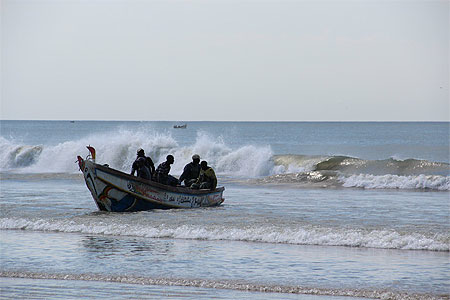 With the exception of two trawlers fishing for hake, all the vessels fishing under this agreement are tuna vessels: 28 tuna seiners, 10 pole-and-line tuna vessels and 5 longliners (Spanish, French and Portuguese).
With the exception of two trawlers fishing for hake, all the vessels fishing under this agreement are tuna vessels: 28 tuna seiners, 10 pole-and-line tuna vessels and 5 longliners (Spanish, French and Portuguese).
Tuna is a highly migratory species of fish that travels the Atlantic, both on the high seas and in the exclusive economic zones (EEZs) of African countries bordering the Atlantic, including Senegal. These tuna species are managed by the International Commission for the Conservation of Atlantic Tunas (ICCAT), which is a regional fisheries management organisation (RFMO). ICCAT’s role is to set catch limits for a range of tuna species, allocate these resources through quotas among its members who have an interest in these fisheries, and make recommendations for the sustainable management of other tuna species without issuing quotas. For all species, member countries wishing to develop their fisheries must submit a sustainable development plan to ICCAT. Tuna species that migrate through Senegalese waters at any time of the year do not belong to Senegal. The tuna species that are managed by quotas “belong” to the countries that have received quotas from ICCAT. For the others, they belong to the countries that fish them.
Under the Agreement between the EU and Senegal, the EU does not pay to catch Senegalese fish, as it does in Mauritania or Guinea-Bissau, for example. It pays for access to Senegalese waters to catch migratory species as they pass through Senegalese waters.
If there were no agreement with Senegal, European boats would continue to fish for this tuna outside Senegalese waters, when they are swimming on the high seas or in the EEZs of neighbouring countries with which the EU has an agreement, and Senegal would receive no financial compensation.
In this context, we might also ask why Senegal shows so little interest in developing a local artisanal tuna fishing sector. In the 1970s, Senegal developed a fleet, SOSAP (Société Sénégalaise d’Armement à la Pêche).
However, in recent years, Senegal has not presented an ambitious plan for the development of a Senegalese tuna fleet to ICCAT. As a result, Senegal has only received crumbs for species under quota. This may change with the possible repatriation of a fleet of industrial tuna boats of Korean origin. But the track record of this Korean fleet, marred by accusations of illegal fishing, is not reassuring for those involved in the sector.
Wouldn’t it be preferable for Senegal to concentrate on developing sustainable artisanal tuna fishing in its waters, rather than leaving tuna fishing entirely in the hands of foreign, European or Asian players?
 If a new protocol is eventually signed with the EU, another aspect that needs to be improved is the use of sectoral support funds. At present, some EU-funded projects are not adapted to or do not benefit artisanal fishing. For example, the only research vessel in Senegal, the Itaf Deme, which was refurbished with sectoral support funds, is an obsolete vessel that does not meet current needs. What’s more, the vessel, which is over two decades old, has not operated since 2022 following a breakdown.
If a new protocol is eventually signed with the EU, another aspect that needs to be improved is the use of sectoral support funds. At present, some EU-funded projects are not adapted to or do not benefit artisanal fishing. For example, the only research vessel in Senegal, the Itaf Deme, which was refurbished with sectoral support funds, is an obsolete vessel that does not meet current needs. What’s more, the vessel, which is over two decades old, has not operated since 2022 following a breakdown.
In the latest fisheries agreement protocol with the EU, sectoral support has been used in particular to supply safety equipment at sea to artisanal fishermen and to develop participatory surveillance programs involving artisanal fishing communities. However, stakeholders are not informed of these actions, and are not in a position to assess their relevance.
The main problem is the lack of transparency in the allocation and use of sector support funds. What’s more, the countries’ annual reports to the European Union are not made public. It is clear that without stakeholder participation, top-down decisions on sector support projects will have neither the community approval nor the desired impact.
In conclusion, the new government has set itself an ambitious program for fisheries and aquaculture. We need to take the time to reflect with the men and women of Senegal’s artisanal fishing sector and civil society, to assess the coherence of these proposals, and to see how they can be put in place while preserving the achievements of recent years. As in all things, it is important to move slowly.


